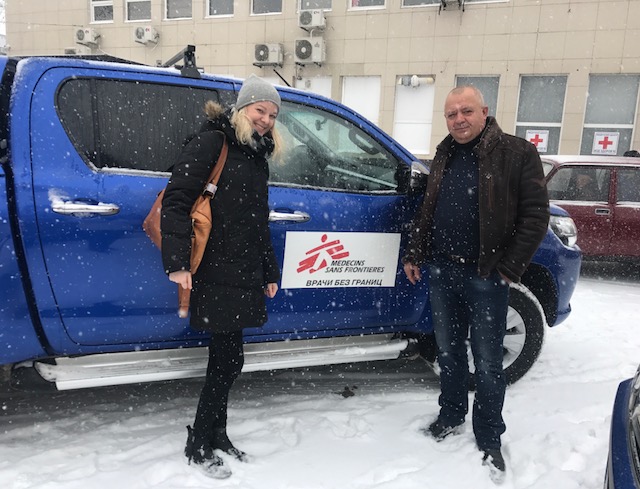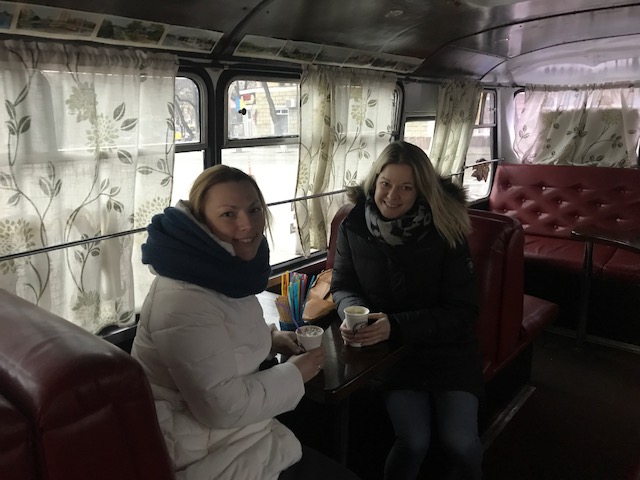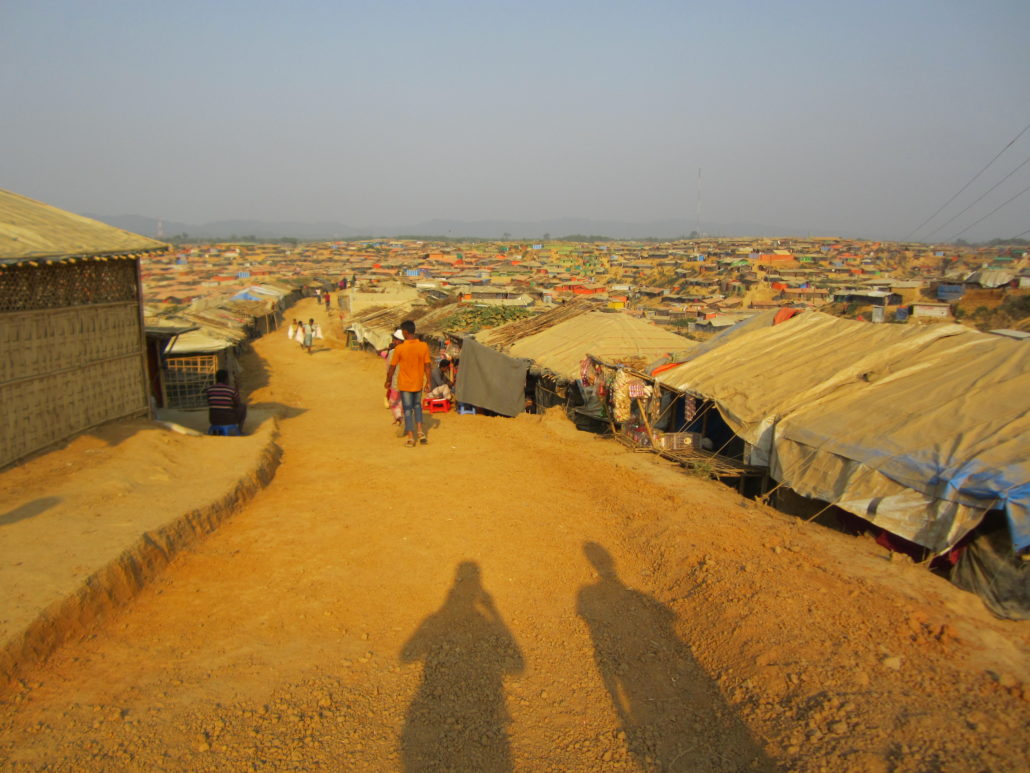Voices from the field: Kristine in Ukraine
Q&A Session with Kristine from Norway, on mission in Ukraine
Q: Ukraine was your first assignment as Remuneration Analyst. Tell us a bit about your experience!

Kristine and MSF Driver in Mariupol, Ukraine
A: As a current office staff for MSF Norway, I am very grateful for the opportunity to go on a Benchmark mission. Ukraine might not be the country that first comes to mind when thinking of going “to the field”, but nonetheless it was a great experience; a chance to see how the projects are set up, learn about the different roles, and experience the interaction between MSF sections. The political and economic context in Ukraine is also interesting, and highly relevant for all of Europe. There is an ongoing conflict, which we hardly hear anything about in the media in Norway. There are frequent violations of the ceasefire, and even if many people have left the area to escape regular shelling and to search for work, thousands remain left behind in areas close to the frontline. Infrastructure, including public transport and access to medical care has been severely affected. The conflict affects the economic situation of the country; even if it has stabilized a bit since the hyperinflation in 2015 (when inflation reached almost 50%!). Cost of living is still high compared to the average salaries in Ukraine. My assignment as a Remuneration Analyst gave me insight to salary levels and working conditions, and at the same time I heard the stories directly from people who had to leave everything behind…
Q: What is your professional background and did you find it helpful for your assignment?
A: Both my education and most of my previous work experience is in the service industry. I have a degree in Business (with a major in Hospitality Management) which to some extent was helpful for the analyses and economic side of my assignment, but what I found most helpful was that I am used to working with people. One of the most important aspects of the benchmark mission is to conduct interviews with organisations and businesses, and I find that if you are able to create some kind of connection and trust while adapting to different situations and personalities, it is easier to obtain the information needed. This is especially important in a country like Ukraine, were corruption is a big problem, and people are often skeptical when it comes to sharing information about salaries and pay structure.
Q: Why were you interested in benchmarking? Why do you think it is important?
A: Benchmarking is a great opportunity to learn more about the work MSF does in a country, and at the same time learn about how the situation in the country affects the economy, and therefore our staff. Benchmarking is important to make sure we pay our national staff a fair salary, and that we apply allowances and incentives according to market practice. MSF aims to be a responsible employer, and the Benchmark is a tool to make sure that we are.
Q: What was the most unexpected for you during your mission?
A: When being approved for a benchmark mission, I did not know which country I would be sent to. I think the most unexpected was to end up in Kiev – a European big-city, living a “normal life”; going to the office, living in a nice apartment, going to the gym, concerts and restaurant…
Q: Did you have a favourite experience?
A: Visiting the projects. MSF had 2 operational projects when I was there; one running mobile clinics along the frontline in the Eastern parts of Ukraine, and a treatment center for Hepatitis C in the city of Mykolaiv, in southern Ukraine. (In 2018 MSF will also open a Tuberculosis project in Zhytomyr, west of the capital Kiev.)
Q: What sets working for MSF apart from other employers?
A: The commitment of the MSF staff. I have always respected the work of MSF, and I am very happy and proud to be a part of it.
Q: Which advice would you give a new benchmarker before they start their first assignment?
A: Be prepared to work on your own, but don’t be shy! Make sure you get the help you need from coordination in the country, and remember that the coordinators back in Norway are there to help you when you get stuck.
As there were hardly no security restrictions in Kiev, I often travelled by Uber from meeting to meeting – and not knowing the language, trying to look up addresses I didn’t understand, often put me in situations where I felt a bit lost (and cold!:))… but with a bit of sign language, the help of nice people, and by being a bit perseverant – it all worked out in the end

Warming up over coffee in an old bus
Q: Which item would you always bring on a mission?
A: A picture of my hometown, Geiranger. Many people associate Norway with mountains and fjords, and showing them a picture of my beautiful hometown can be a nice icebreaker when trying to connect with new people.
Q: To which country would you like to go on mission and why?
A: Since Kiev is quite a stable mission, I would like to experience an emergency mission. Bangladesh would be high on my list, especially as I have travelled in Myanmar earlier. Hearing about the targeted violence of the Rohingyas, and reading the stories shared by survivors in Bangladesh, really makes me want to contribute.

Stark contrast to Ukraine: Kutupalong refugee camp in Bangladesh (photo courtesy of Sjoerd de Groot)

